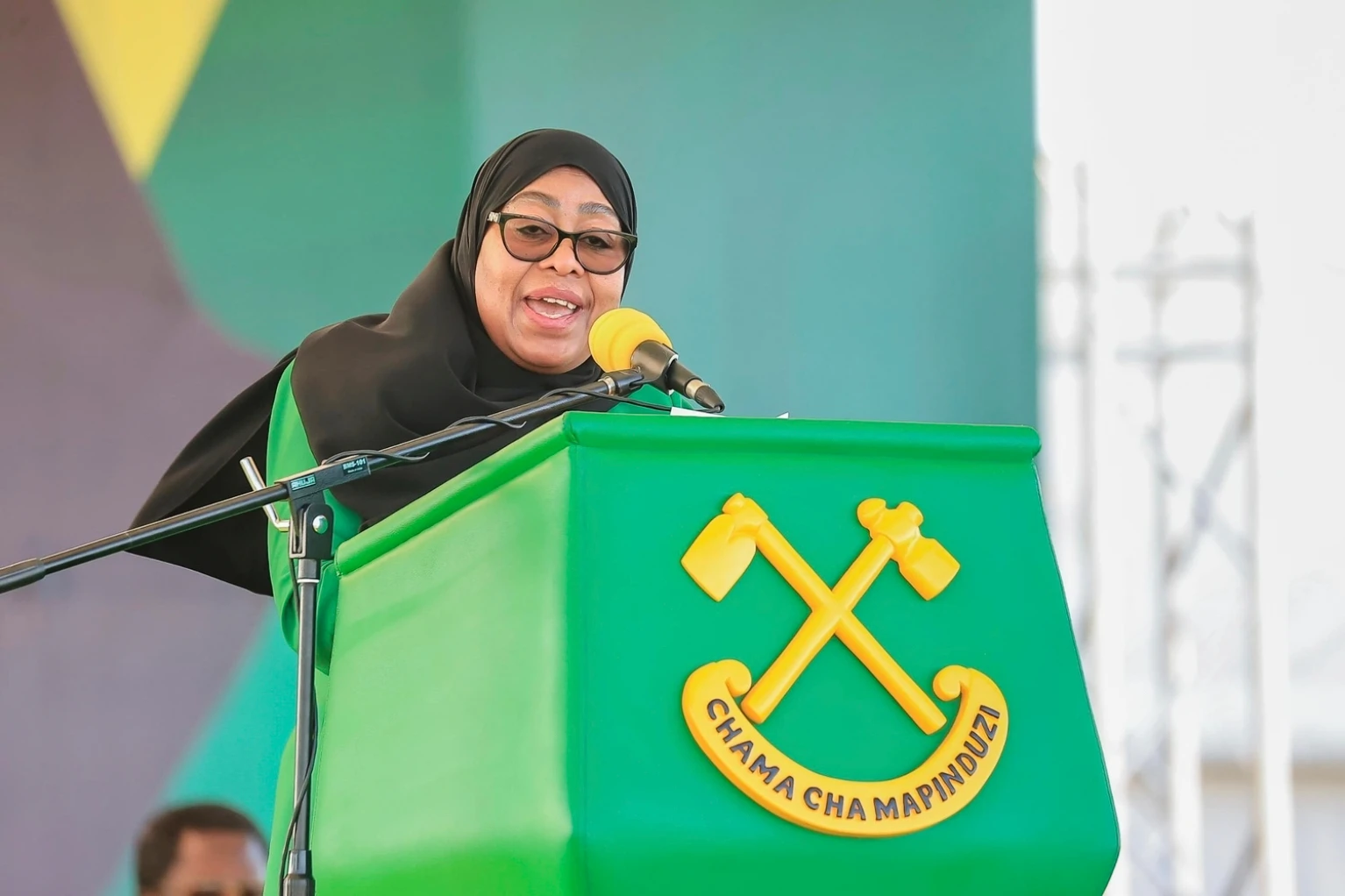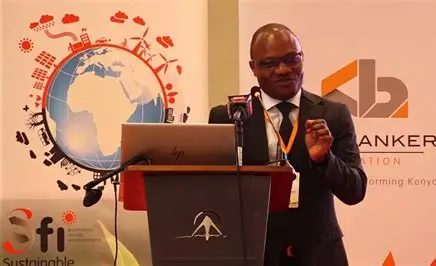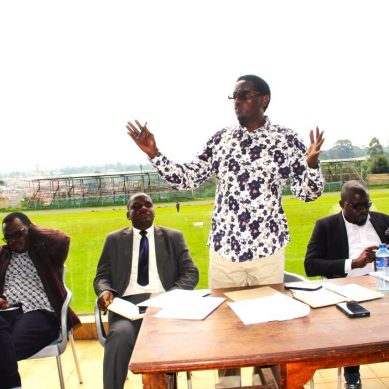
It is a known fact that Afrca is replete with conflict rich areas, often resulting in violence and bloodbath that may extinguish life on a continuous basis. When on January 10, 2025, I listened to the Vice-Chancellor of Makerere University, Prof Barnabas Nawangwe, decrying the real challenge of peace, I was reminded that the most peace-deficient regions (PDR) in Africa are in West Africa and the Great Lakes Region.
One point we have often ignored while discussing peace in Africa is the truism that our similar education systems characterised by disciplining of education has a lot to do with the recurrent peace deficiency syndrome (PDS).
Disciplining education has its origins in our colonial past when our uninvited guests from Europe introduced institutions like schools, colleges and universities in which subjects and topics of learning were assigned to disciplines such as biology, chemistry, physics, sociology, literature, geography and economics. This is disciplinary education. Before the uninvited guests arrived, our education everywhere in Africa was one -that is, holistic. The guests did not only introduce tribes of disciplines (academic tribes) but also made education territorial, whereby particular disciplines were cast together in one academic territory at the exclusion of other territories. In total the territories were three: Social Science, Arts (or Humanities) and Natural Science.
This institutional structure and function institutionalised intrigues and conflicts, not only in the academic tribes but also the academic territories. Since the institutionalisation of intrigues and conflicts, peace has been continually antagonised in the academic environment. It is under these conditions that we have developed careers and professions as well as graduated students at all levels of education.
Anyone who has passed through an African university will the peace deficiency syndrome has persisted in the academic tribes and academic territories because some with power and influence have depressed the promotions and career development of some among staff or even sabotaged the academic development of some students for various reasons.
The media in Uganda, for example, has recorded quarrels between staff and the leaders and complaints of students against school or university leaders, or between students and their teachers, lecturers and professors for sabotaging their academic development. Sometimes a postgraduate student whose academic programme was designed to last two or three years has taken longer. Some doctorate students have taken as many as 20 years to get their degrees.
One reason disciplinary education bred intrigues and conflicts was the yearning for purity of science or academic purity, whereby morality, ethics and peace which characterised the holistic education system, were squeezed out of the academic disciplines and territories of knowledge. Students were taught as if morality, peace and ethnics were an anathema to education. So, we produced, and largely continue to produce graduated of the school and university who ethically, morally and peace empty.
Unfortunately, many of them have been separated for decades, from their rural communities where the virtues of peace, ethics and morality are central to the education process. Such individuals are unlikely to attach value to peace, ethics and morality. They tend to be conflict loving and to exclude ethics and morality in their everyday life and in practice in their life of work.
Apparently such are the people who become leaders in African society. They are the ones who become Presidents, Ministers, Members of Parliament and Justices. They become heads of institutions, including the family institutions. They frequently make decisions that are ethically and morally empty and precursors for intrigues, conflicts and violence. When institutions for peace-building are established, they despise them and work to undermine them, ultimately leading them to ineffectiveness or total collapse.
Makerere university long ago established the Human Rights and Peace Centre (HURIPEC) to lead the quest for human rights and peace learning. Towards the end of the 1990s, under the leadership of Dr Oloka Onyango, HURIPEC attracted funding from Ford Foundation, the American Association for the Advancement of Science (AAAS) and the University of Florida, to launch a university-wide Interdisciplinary Teaching of Human Rights, Peace and Ethics Programme (ITHPEP). The rogramme started off well and for almost 10 years it successfully penetrated all faculties and became embraced by most academic staff and faculty leaders.
Under the leadership of the leadership of the late Dr B.G. Wairama, ITHPEP was able to design an academic policy for Interdisciplinary Teaching and Research emphasising the teaching of Human Rights, Peace and Ethics across the university curriculum. The Makerere University Senate endorsed it but simultaneously started a process of reaffirming the superiority of disciplinarity and disciplinary scholarship.
The late Prof Akiiki Mujaju was the scholar chosen to write an alternative disciplinary policy, to underscore the superiority of disciplinary scholarship. The two policies clashed at policy level in the university council. When the council made its policy on interdisciplinarity, it made interdisciplinary scholarship optional and useless to career development of staff. The Akiiki Mujaju report sparked sharp criticism from the Makerere University Academic Staff Association who described it as a violation of their human rights.
This is how Makerere University became a university strongly entrenched in the disciplinary culture of the past, and continues to be at the forefront of graduating disciplinary scholars and graduates in the 21st century of new and different knowledge production. The interdisciplinary current started on the continent by Makerere University shifted to Mbarara University of Science and Technology. (MUST). MUST became the first and only university in Africa to embrace the new knowledge production culture that was sweeping the globe.
Today there are scholars scattered in different universities that are researching, producing knowledge, pursuing careers and producing graduates in the knowledge production culture of interdisciplinarity. Others are active in crossdisciplinarity, transdisciplinarity and extradisciplinarity (nondisciplinarity), as Makerere University and most universities of Africa remain deeply rooted and sink further in disciplinarity, with the deceptive knowledge culture of multidisciplinarity, which does not challenge disciplinarity.
Interdisciplinarity, crossdisciplinarity, transdisciplinarity and extradisciplinarity are the new knowledge production cultures that fully integrate peace, human rights and ethics and value morality in education. They are also called the sustainability sciences or integration sciences. Knowledge workers active in these knowledge cultures are unlikely to be at the centre of intrigues, conflicts and violence, or even to peripherally fan them, because of their strong peace, ethical and moral values.
For God and my country.
- A Tell report / By Oweyegha-Afunaduula / Environmental Historian and Conservationist Centre for Critical Thinking and Alternative Analysis (CCTAA), Seeta, Mukono, Uganda.
About the Centre for Critical Thinking and Alternative Analysis (CCTAA)
The CCTAA was innovated by Hyuha Mukwanason, Oweyegha-Afunaduula and Mahir Balunywa in 2019 to the rising decline in the capacity of graduates in Uganda and beyond to engage in critical thinking and reason coherently besides excellence in academics and academic production. The three scholars were convinced that after academic achievement the world outside the ivory tower needed graduates that can think critically and reason coherently towards making society and the environment better for human gratification. They reasoned between themselves and reached the conclusion that disciplinary education did not only narrow the thinking and reasoning of those exposed to it but restricted the opportunity to excel in critical thinking and reasoning, which are the ultimate aim of education. They were dismayed by the truism that the products of disciplinary education find it difficult to tick outside the boundaries of their disciplines; that when they provide solutions to problems that do not recognise the artificial boundaries between knowledges, their solutions become the new problems. They decided that the answer was a new and different medium of learning and innovating, which they characterised as “The Centre for Critical Thinking and Alternative Analysis” (CCTAA).
Further Reading
The Akiiki Mujaju Academic Policy of Makerere University
Denis Asiimwe, F. C. Oweyegha-Afunaduula (1999). Interdisciplinary Teaching of Human Rights and Peace: Report of the Makerere University Administrators’ Workshop on the Interdisciplinary Teaching of Human Rights and Peace at Makerere University. Human Rights and Peace Centre Publisher), 1999https://books.google.co.ug/books/about/Interdisciplinary_Teaching_of_Human_Righ.html?id=GrAUAQAAIAAJ&redir_esc=y Visited on 10 January 2025 at 19:56 pm EAT.
Eremu, John (2006). Makerere waves Ph. D rule for Lecturers. New Vision, September 3 2006. https://www.newvision.co.ug/news/1141544/makerere-waives-phd-rule-lecturers Visited on 10 January 2025 at 19:27pm EAT
New Vision (1999). Makerere University Senate Upholds Mujaju Report. 19 August 1999https://allafrica.com/stories/199908190100.html Visited 10 January 2025 at 19:23pm EA
Oweyegha-Afunaduula (2023). Advancing Science through integration experience. Watchdog, https://www.watchdoguganda.com/op-ed/20230709/156435/oweyegha-afunaduula-advancing-science-in-african-universities-through-integration-experience.html Visited on 10 January at 19:30 pm EAT.
Oweyegha-Afunaduula (2023). Urgent need for interdisciplinary approaches: Embracing a new culture of knowledge integration. URN, 8 July 2023, https://ugandaradionetwork.net/story/urgent-need-for-interdisciplinary-approaches-embracing-a-new-culture-of-knowledge-integration Visited on 10 January 2025 at 19:52 EAT.
Oweyegha-Afunaduula (2023). Knowledge integration revolution in higher education: interdisciplinarity. MUWADO, November 2 2023, https://muwado.com/knowledge-integration-revolution-in-higher-education-inter-disciplinarity/?v=2a0617accf8b Visited on 10 January 2025 at 19:46pm EAT.
Oweyegha-Afunaduula (2023). The Academia and the Academic at an African University Campus. MUWADO, December 13 2023. https://muwado.com/the-academia-and-the-academic-at-an-african-university-campus/?v=2a0617accf8b Visited on 10 January 2025 at 20.06 pm EAT.
Oweyegha-Afunaduula (2023). Being and Interdisciplinary, Crossdisciplinary, Transdisciplinary and Extradisciplinary Scholar and Team Scientist. Uganda Radio Network, https://ugandaradionetwork.com/s/being-an-interdisciplinary-crossdisciplinary-transdisciplinary-and-extradisciplinary-scholar-and-team-scientist/ Visited on 10 January 2025 at 2014 pm EAT.
Oweyegha-Afunaduula (2024). The Politics of Pure Science in Uganda. Watchdog, https://www.watchdoguganda.com/op-ed/20231107/161782/oweyegha-afunaduula-the-politics-of-pure-science-in-uganda.html Visited on 10 January 2025 at 20:01 pm EAT.








